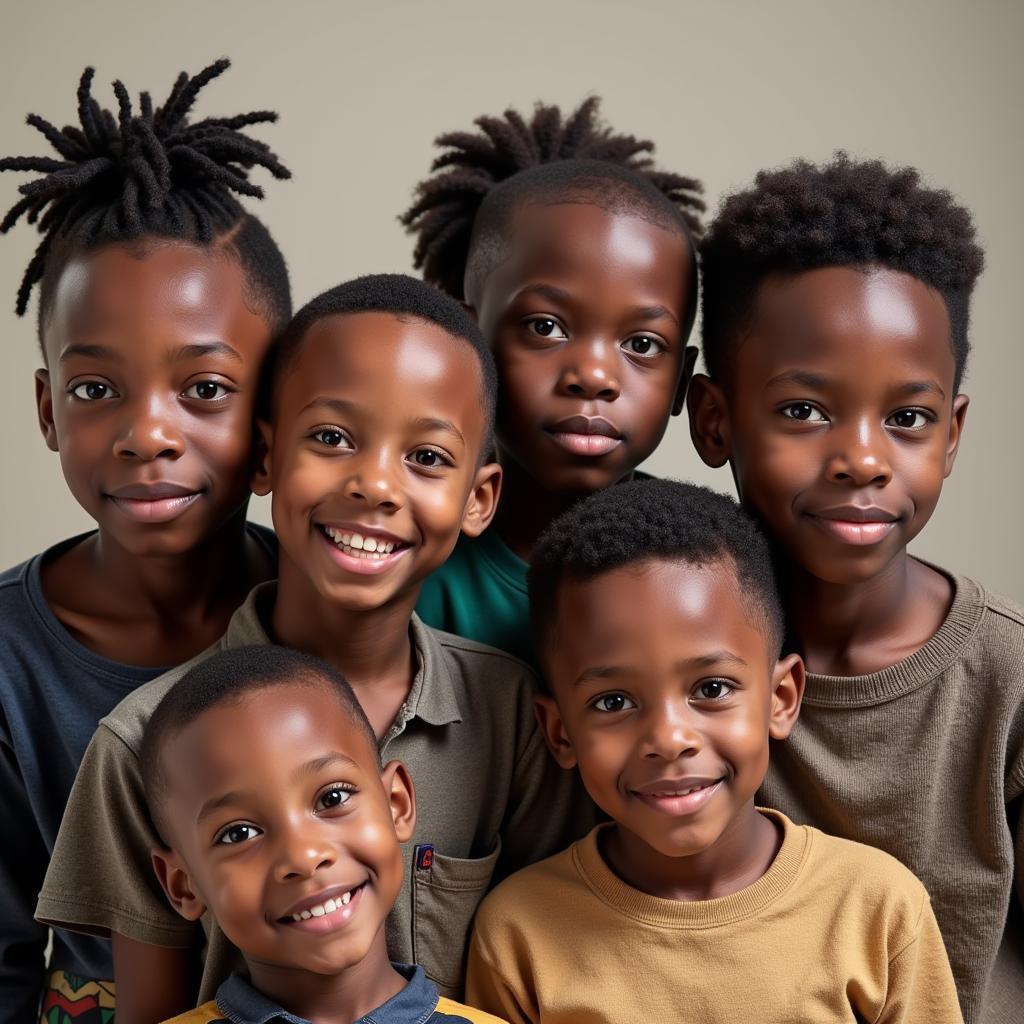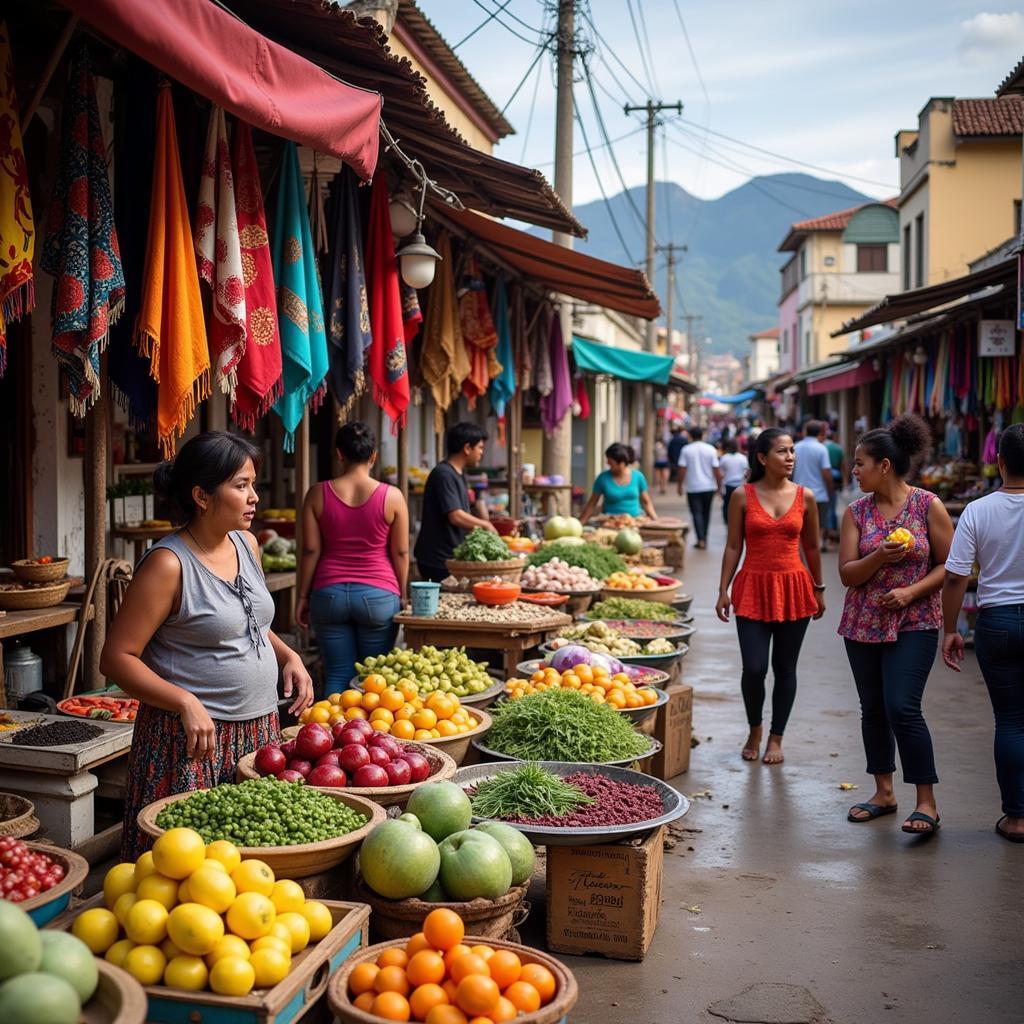About South African Traditional Dresses
South African traditional dresses are a vibrant tapestry of colors, textures, and styles, each telling a unique story about the country’s diverse cultures and heritage. From the intricate beadwork of the Ndebele to the animal skin garments of the Zulu, these garments offer a glimpse into the rich history and traditions of the South African people.
A Fusion of Cultures and Influences
South Africa, often referred to as the “Rainbow Nation,” is home to a multitude of ethnic groups, each with its distinct cultural practices and clothing traditions. This rich cultural blend is reflected in the diversity of South African traditional dresses, which have evolved over centuries, incorporating influences from indigenous knowledge, colonial encounters, and neighboring African cultures.
The arrival of European settlers, including the Dutch and the British, in the 17th century brought with it Western fashion trends that began to influence local clothing styles. This cultural exchange led to the incorporation of fabrics like cotton and silk, alongside new garment silhouettes and embellishment techniques. However, traditional garments continued to hold deep cultural significance, often reserved for special occasions, ceremonies, and rituals.
The Language of Clothing: Symbolism and Significance
South African traditional dresses are much more than just garments; they are powerful symbols of cultural identity, social standing, and ancestral heritage. Every element, from the colors and patterns to the accessories and hairstyles, carries specific meanings and conveys messages within the community.
For instance, the intricate beadwork adorning many traditional dresses often communicates a woman’s marital status, age, or social standing. Similarly, animal skins and feathers, often incorporated into garments worn by men, can signify their role as hunters, warriors, or leaders. These symbolic elements highlight the deep connection between clothing and cultural identity in South Africa.
Exploring Regional Variations: A Tapestry of Styles
Each of South Africa’s nine provinces boasts its own unique style of traditional dress, reflecting the specific cultural heritage and traditions of its people.
Zulu Traditional Attire: A Celebration of Strength and Beauty
The Zulu people, the largest ethnic group in South Africa, are known for their striking traditional attire that celebrates strength, beauty, and cultural pride. Zulu men typically wear animal skins, often from leopards or lions, symbolizing their courage and power. Women’s attire varies depending on their marital status, with married women donning elaborate beaded skirts and headdresses.
Xhosa Traditional Dress: Elegance and Grace
The Xhosa people are renowned for their elegant traditional dress, characterized by flowing silhouettes and intricate beadwork. Women’s attire often features long skirts, embroidered aprons, and beaded necklaces, while men wear embroidered blankets and beaded headbands. The color combinations and beadwork patterns hold specific meanings and are passed down through generations.
Preserving Heritage in a Modern World
In contemporary South Africa, traditional dresses continue to play a vital role in preserving cultural heritage and expressing identity. While Western clothing is prevalent in everyday life, traditional garments are treasured for special occasions, cultural events, and celebrations.
Moreover, there is a growing movement among South African designers to incorporate elements of traditional dress into contemporary fashion, creating unique and stylish pieces that celebrate the country’s rich cultural heritage. This fusion of tradition and modernity ensures that South African traditional dresses continue to evolve and inspire, captivating the world with their beauty and cultural significance.
Conclusion
South African traditional dresses offer a captivating window into the country’s diverse cultures and traditions. From the intricate beadwork to the symbolic animal skins, these garments tell stories of heritage, identity, and resilience. As South Africa continues to evolve, its traditional dresses remain a powerful symbol of its rich cultural tapestry, captivating the world with their beauty and significance.
FAQs About South African Traditional Dresses
-
What are the most common fabrics used in South African traditional dresses?
Traditional dresses often incorporate fabrics like cotton, silk, animal skins (leather), and woven grasses. -
Are there specific colors associated with different cultural groups?
Yes, colors often hold symbolic meaning. For example, red and ochre are significant in Ndebele culture, while blue and white are prominent in Xhosa traditions. -
Where can I learn more about the history of South African traditional dresses?
Museums, cultural centers, and online resources dedicated to South African history and culture offer valuable insights. -
Is it appropriate for non-South Africans to wear traditional dresses?
It’s essential to approach cultural attire with respect and sensitivity. Wearing traditional garments authentically and respectfully, ideally within the context of a cultural exchange or event, can be a way to appreciate and honor the culture. -
Are there any contemporary designers incorporating traditional elements into their work?
Yes, many South African designers are gaining recognition for their innovative use of traditional fabrics, patterns, and techniques in modern fashion.
african cichlid red peacock are known for their vibrant colors and patterns, much like the diverse textiles found in traditional South African dresses. Just as these fish are admired for their beauty, so too are the intricate details and craftsmanship of these garments.
The variety of african cichlid chart showcasing different species reflects the vast array of styles and variations found in traditional South African dresses across different cultural groups. Each group has its own unique designs and techniques, contributing to the rich tapestry of South African textile art.
Need help or have questions? Feel free to contact us!
- Phone: +255768904061
- Email: kaka.mag@gmail.com
- Address: Mbarali DC Mawindi, Kangaga, Tanzania
Our dedicated team is available 24/7 to assist you!

